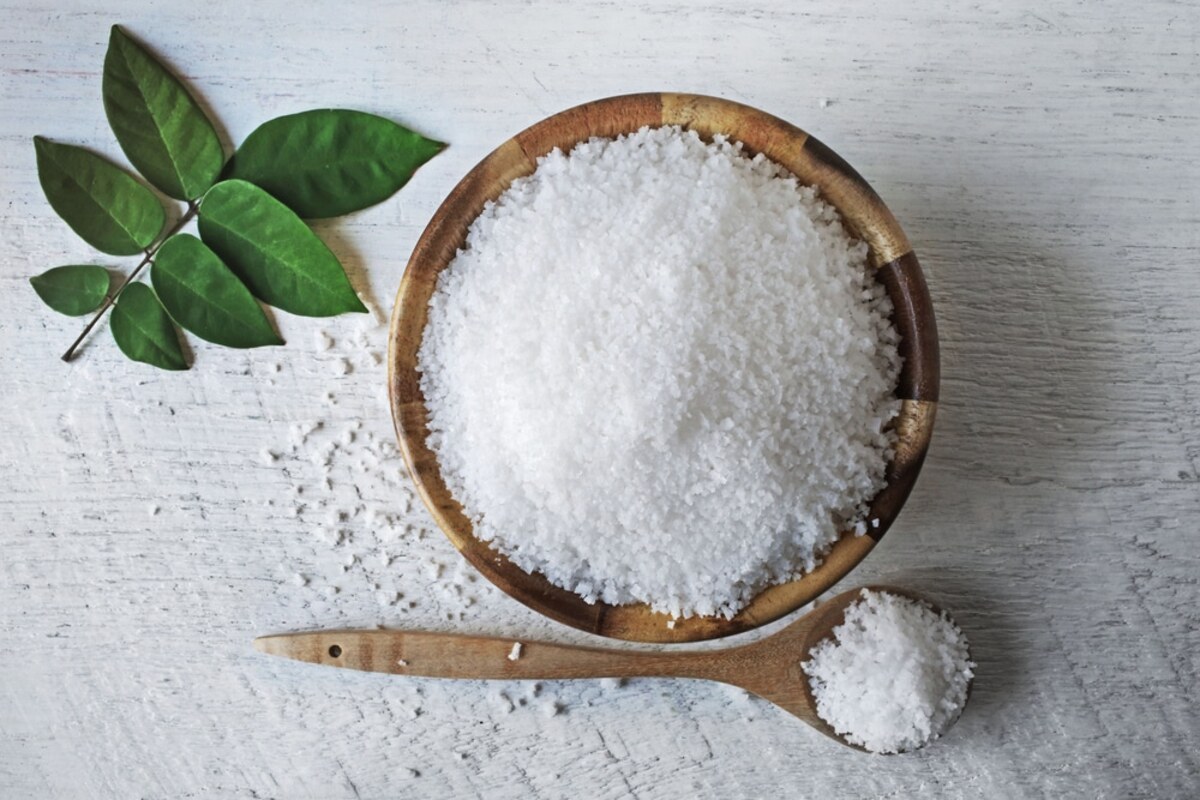Study reveals novel therapeutic target for traumatic brain injury
Health outcomes vary greatly among the approximately 1.5 million Americans who survive a traumatic brain injury each year.
Kosher salt gets its name and meaning from an ancient Jewish tradition called kashrut. These are a set of strict dietary guidelines that guide the types of food allowed to be eaten to their preparation. One of the guidelines of this religious tradition is that eating meat containing blood is forbidden. Jews hence had to find a way to drain blood from meat, which led to the process of koshering.

SNS
Have you ever wondered how bland the world of food would be if we had not discovered salt? Salt is one such ingredient that not just adds the maximum taste to our food but also elevates other flavors and helps everything taste better. Apart from being an integral ingredient for food, it has a lot of medicinal benefits like helping the body in maintaining thyroid levels, preventing low blood pressure, keeping the body hydrated.
Did you know that there are more than 10 varieties of edible salt? While the most commonly used amongst all the varieties of salt is our regular table salt, Kosher Salt is now becoming the talk of the town. To find out what is Kosher salt, read on:
Kosher salt gets its name and meaning from an ancient Jewish tradition called kashrut. These are a set of strict dietary guidelines that guide the types of food allowed to be eaten to their preparation. One of the guidelines of this religious tradition is that eating meat containing blood is forbidden. Jews hence had to find a way to drain blood from meat, which led to the process of koshering. They would kosher meat by using a type of coarse-grained salt to drain blood from the meat. As used today in America, kosher salt does not necessarily adhere to Jewish culinary tradition but does meet some of its characteristics.
Advertisement
There are two types of kosher salt, the first is the coarse-grained kosher salt that is mined just like any other type of salt, and the other is kosher salt that meets traditional Jewish guidelines. For a kosher salt to be accepted as kosher, it has to be certified by a Jewish institute such as the Orthodox Union.
Kosher Style Salt
The most popular type of salt extraction is through the solar evaporation of seawater. Most of the salt comes from the sea. Salt makes up about 2.5%of seawater. The seawater is then taken through various evaporation ponds where various seawater minerals precipitate at different temperature points. Alternatively, the salt found in the rich salt deposits of the earth, such as kosher salt, can be mined from underground mines. These underground mines are places that were once seas that later evaporated.
The salt is then sorted, separated, and processed to make kosher salt. The third method is the vacuum evaporation method. In this method, vertical wells are dug into a salt mine or deposit. Water is forced down one well as brine is pumped up the other. The brine is then stored in tanks before being taken to vacuum pans. The brine and water temperature are systematically regulated to precipitate varying textures of salt at different temperatures.
Kosher Certified Salt
Kosher-certified salt commonly referred to as “kosher salt,” means that the salt has met the guidelines outlined by Jewish law and upheld by kosher certification agencies and members of the Jewish faith. The certification ensures that the product is produced and handled by these high standards and is suitable for consumption for those following a kosher diet.
Certified kosher salt is mined, just like all other types of salt. The difference is that the mining, processing, and packaging happens under strict Jewish guidelines. This means that no additives or chemical elements are added to the salt that may go against the kosher tradition. Once the salt processing is done, a rabbi or a recognized Jewish institution vets the salt and certifies that it meets cultural requirements.
Kosher salt vs table salt
So, why use kosher salt in your cooking? Here are the main differences between kosher salt vs table salt,
Conclusion: The shape of kosher salt gently salts foods enhances their flavor and has no iodine which can taste bitter.
Advertisement